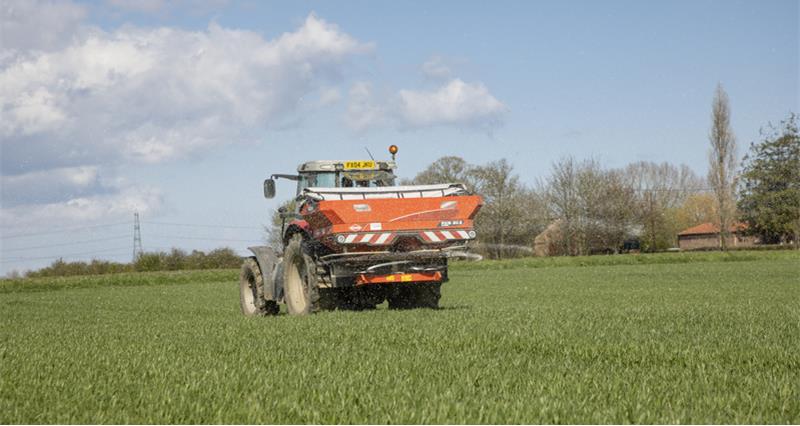The planned CBAM (Carbon Border Adjustment Mechanism) will apply to carbon-intensive products such as fertiliser, but not other goods such as food or agricultural products.
The charge applied will depend on the amount of carbon emitted in the production of the imported good and any gap between the carbon price applied in the country of origin and the carbon price faced by UK producers.
Comparable carbon price
Key trading partners such as the European Union are also introducing such systems, but prices within the schemes may vary and many regions have no carbon pricing at all.
Announcing the plans, Chancellor Jeremy Hunt said: “This levy will make sure carbon-intensive products from overseas face a comparable carbon price to those produced in the UK, so that our decarbonisation efforts translate into reductions in global emissions.”
Fertiliser price increase fears
The NFU fears any import levy will drive up prices for fertiliser which is a crucial input that helps British farmers and growers produce food for the nation.
This has the potential to undermine the competitiveness of domestic food production against imported food which is produced using cheaper and potentially less sustainable inputs which are not subject to an equivalent carbon price.
This risks displacing domestic food production with less sustainable food imports.
Early discussions important
NFU chief economic adviser Rohit Kaushish said: “Although government only made the announcement earlier this week, it was important for us to engage with officials at the Treasury at the earliest opportunity to understand fully what is being proposed.
“The cost of producing food has been soaring and putting many farmers and growers under immense pressure. Measures such as the CBAM which target decarbonisation of parts of the economy must ensure they do not undermine the sustainable transition of our domestic food system.
“Going forward, it’s crucial the British farming industry has access to better market data on fertilisers to enhance decision making on production, greater government support to transition to more sustainable approaches to crop nutrition and the establishment of core production standards for imports to uphold standards in our domestic market.”
